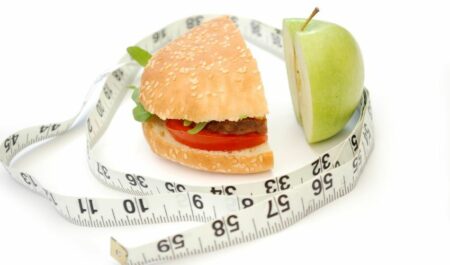Cutting back on the quantity of calories you consume on a daily basis can be an efficient strategy for weight loss. In this article is going to explorer about complete details on how many calories needed to lose weight in daily?
However, determining the precise number of calories that you should consume on a daily basis can be challenging due to the fact that it is dependent on a variety of factors, such as your age, sex, size, and activity level.

What Is The Recommended Daily Amount Of Calories That You Should Consume?
The amount of calories that you should consume on a daily basis is determined by a number of different aspects of your life, such as your age, gender, height, present weight, level of exercise, and metabolic health, to name just a few.
It is crucial to generate a calorie deficit when trying to lose weight. This can be done by consuming less calories than you normally do or by increasing the amount of exercise you perform.
Some people decide to combine the two strategies, reducing the amount of food they consume while simultaneously increasing the amount of physical activity they get.
Even if your goal is to reduce your body fat, you should still make it a priority to ensure that you are consuming a enough number of calories to supply your body with the nutrients it requires.
The ability to maintain the weight loss over time is the single most crucial aspect of any approach to reduce body fat.
Because of this, the majority of weight loss professionals advocate for making only modest cuts in calorie consumption in order to foster long-term weight loss.
For instance, the majority of trendy diets propose limiting your daily calorie consumption to somewhere between 1,000 and 1,200 calories, which is insufficient for the majority of healthy persons.
Cutting your calorie intake too dramatically not only results in a number of serious negative effects, but it also raises the likelihood that you may be deficient in one or more nutrients.
In the same vein, it causes metabolic changes that make it difficult to maintain one’s weight over the long run.
The 2020–2025 Dietary Guidelines for Americans published by the United States Department of Agriculture (USDA) provide the basis for the following in-depth examination of the appropriate calorie intake for adults in the United States.
What Is The Calorie Requirements For The Women?
Women’s calorie requirements might vary widely depending on factors such as their age, size, and amount of physical activity.
To keep their weight stable, the majority of women between the ages of 19 and 30 need between 2,000 and 2,400 calories per day.
The energy requirements for women between the ages of 31 and 59 are a little bit lower.
In order to keep their body weight stable, it is recommended that women in this age range take between 1,800 and 2,200 calories each day.
Women over the age of 60 have a lower calorie requirement on average, and they should aim to consume between 1,600 and 2,000 calories each day in order to keep their weight stable.
It is important to keep in mind that the precise number of calories that you require could lie on either the high or low end of this range, or even exceed it, depending on the level of activity that you engage in, as well as your height, weight, and current state of health.
In addition, these estimations do not apply to women who are pregnant or lactating because these individuals have dramatically increased calorie requirements.
What Is The Calorie Requirements For The Men?
In the same way that it is possible for women’s calorie demands to vary, it is possible for men’s calorie needs to do the same.
According to the most recent version of the Dietary Guidelines for Americans, adult men between the ages of 19 and 30 should consume between 2,400 and 3,000 calories on a daily basis in order to keep their weight stable.
As people age, their energy requirements naturally decrease.
In point of fact, men who are between the ages of 31 and 59 require approximately 2,000 to 3,000 calories per day to keep their weight stable, whereas men who are above the age of 60 often require 2,000 to 2,600 calories.
It’s possible that men who have specific health issues or who lead very busy lifestyles need extra calories.
The exact number you need to consume within these ranges is contingent not only on your height but also on your weight.
The Calorie Requirements For The Children
Children’s calorie requirements range greatly depending on factors such as their age, size, and amount of activity.
Different children and adolescents have different calorie requirements due to differences in their ages and sexes.
It’s possible that a child of 3 years old only needs 1,200 calories, but an adolescent might need closer to 3,000 calories.
It is important to keep in mind, however, that there is often no need for children and teenagers who are still growing to watch their calories.
In point of fact, reducing the amount of calories a child consumes can raise the likelihood that they will develop nutritional deficiencies, cause their growth to be stunted, and contribute to the development of an unhealthy relationship with food or an eating disorder.
Instead of encouraging kids and teenagers to count calories, it is preferable to urge them to eat foods that are healthy and high in nutrients, to cook more meals and snacks at home, and to promote regular physical activity.
What Exactly Is A Calorie?

To put it another way, a calorie is a unit that is used to quantify energy.
Calories are the standard unit of measurement for determining the amount of energy contained in meals and beverages.
You need to consume less calories each day than your body uses up in order to experience weight loss.
On the other hand, if you want to put on weight, you need to ingest more calories than you burn off each day.
It is important to keep in mind that the “calories in, calories out” notion of weight loss may appear straightforward, but the reality is that numerous factors, including as medical diagnoses, hormonal changes, heredity, and age, contribute to weight loss or the inability to lose weight.
Determining your current calorie needs and consuming less calories in response to those needs is only one part of the process of developing a balanced diet and lifestyle plan that will help you lose weight and keep it off over the long run.
How To Cut Back On Your Daily Calorie Consumption?
Cutting back on calories without taking into account the kinds of foods you eat in order to slim down is not a healthy or sustainable approach to weight loss, despite the fact that consuming less calories can be an effective strategy for losing weight.
For instance, the benefits to your health of selecting foods that are higher in nutrients, such as whole grains, nuts, vegetables, and fruits, are greater than the benefits of selecting foods that are lower in nutrients, such as soda, doughnuts, and candies.
Because of this, it is highly recommended that you make a few other modifications to your food and lifestyle that will help you maintain a calorie deficit in the long run without feeling hungry or as if you are being denied. These changes can be found here.
The following are five easy tactics that you might use to see if they assist you lose weight.
1. Eat Extra Protein.
Protein is of paramount significance when it comes to the process of shedding excess pounds.
Studies have shown that increasing the amount of protein you consume will help you feel full longer and reduce the amount of food you eat overall.
Protein may also assist in the battle against food cravings.
Some studies suggests that eating snacks that are high in protein can assist increase feelings of fullness while simultaneously reducing hunger and appetite.
Maintaining a diet high in protein may not only help one lose weight, but some study suggests that it may also help one retain their muscle mass and avoid or reduce the amount of weight that they gain back.
Therefore, if you want to achieve weight reduction that is both long-lasting and sustainable, you should think about increasing the amount of protein you consume by eating more eggs, meat, chicken, tofu, nuts, seeds, or legumes. This can help you shed pounds in a healthy way.
2. Limit Sugary Drinks.
Your consumption of sugar-sweetened beverages, such as sodas, fruit juices, chocolate milk, and other liquids with added sugar, should be restricted if you want to make another adjustment that is quite simple to implement.
Because your brain does not detect liquid calories in the same way that it does solid calories, the effects of liquid calories on your emotions of hunger and fullness are not as pronounced.
In addition, research have shown a correlation between drinking sugary beverages and an increased likelihood of being overweight.
The negative effects of sugar extend far beyond the simple issue of weight gain.
In point of fact, added sugar may be a factor in the development of other health problems, such as cardiovascular disease, liver disorders, and type 2 diabetes.
3. Drink More Water.
Consuming more water is one of the easiest things you can do to improve your health.
Maintaining an adequate water intake is linked to better brain health and more effective weight management, in addition to a lower chance of developing kidney stones.
In addition, consuming water right before meals has been shown to diminish feelings of hunger and facilitate consumption of fewer calories overall.
If you need to lose weight, drinking extra water — particularly before meals — appears to be useful when combined with a nutritious diet and other weight loss strategies.
If you want to satisfy your thirst without adding more sugar to your drink, you could try sparkling water, coffee, or tea instead.
4. Exercise.
It’s possible that cutting back on calories, especially significantly cutting back on calories, will slow down your metabolism and make you hungrier.
In addition, reducing your calorie intake too drastically may result in muscle loss, which can be detrimental to your general health and slow down your metabolic rate.
It has been demonstrated that resistance training activities like as weightlifting can help prevent muscle loss, which can assist lessen the effects of long-term calorie restriction on the metabolism.
Consider working out at home with exercises that only use your bodyweight, such as pushups, squats, and situps, if you are unable to get to a gym.
It is also essential to participate in cardio workouts, such as walking, swimming, or jogging, as these activities not only aid in weight loss but also contribute to general health.
In addition, exercise provides a variety of other benefits that extend far beyond the reduction of excess body fat. These benefits include an increase in longevity, an increase in energy levels, an improvement in mental health, and a reduction in the chance of developing chronic diseases.
5. Decrease The Amount Of Refined Carbohydrates And Meals That Have Been Highly Processed.
White bread, pasta, crackers, and white rice are examples of refined carbohydrates. The phrase “refined carbs” refers to grains that have been stripped of their bran and germ.
In addition to that, it consists of sugar and several other sweeteners.
Generally speaking, refined grains are devoid of fiber, which is beneficial to weight loss since it suppresses appetite and increases feelings of fullness.
Eating fewer carbohydrates, including fewer refined carbohydrates, may also assist weight reduction through adjusting levels of specific hormones that regulate your hunger, such as peptide YY. This may be the case because eating fewer carbs causes your body to produce less of these hormones.
In spite of the fact that a low-carb or ketogenic diet is not the best option for everyone, it may be beneficial to replace refined carbs with a variety of sources of carbohydrates that are rich in fiber and nutrients, such as whole grains, root vegetables, nuts, seeds, and legumes. In addition, a ketogenic diet is not the best option for everyone.
Additionally, it is in your best interest to steer clear of ultra-processed meals, such as fast food, packaged snacks, candy, and sugary beverages.
These foods contain not just refined carbohydrates but also additives, sugars, bad fats, salt, and other components that should be consumed in moderation as part of a healthy diet.
A Few Fundamental Recommendations For Weight Loss.
You can lose weight in a sustainable and long-lasting manner by taking numerous actions, in addition to reducing the number of calories you consume, such as the following:
Eat With Awareness And Presence Of Mind.
Eating mindfully is minimizing distractions during meals and paying particular attention to the appearance, texture, and aroma of the food being consumed.
Additionally, this approach may lessen the desire for food and help encourage weight loss over the long term.
Eat A Greater Variety Of Fresh Fruits And Vegetables.
Fruits and vegetables have a low calorie count but a high fiber content.
In addition to improving your consumption of a large number of vital nutrients, increasing the amount of fruits and vegetables you eat may also be associated to a reduction in body fat.
Gather As Many Nutritious Foods As You Can.
When your kitchen is stocked with processed foods that are heavy in sugar and calories, it is much more difficult to stick to a diet that is beneficial for your body.
Instead, you could stock your refrigerator with a lot of healthful foods and components to make nutritious snacks.
Find A Support Mechanism.
Studies have shown that having social support can help one lose weight.
To increase the likelihood of your success, look for a friend or member of your family who has similar objectives, sign up for a weight loss forum online, or see if there are any support groups in your region.
Try Your Hand At Meal Prepping.
Preparing meals in advance can be an easy and time-efficient approach for a large number of individuals to maintain a healthy diet.
Choose one or two days of the week to get a head start on meal preparation so that you may enjoy delectable foods every day of the week.
Possible Drawbacks Associated With Calorie Counting.

When deciding what to eat and how to eat it, it’s vital to keep in mind that there are a lot of other things besides just counting calories to think about. This is true despite the fact that counting calories can be an effective technique for weight loss.
Instead of concentrating simply on calories, it is preferable to consume a diet that is well-rounded and has a wide variety of entire foods that are high in nutrition.
This can help to ensure that you are getting the vitamins, minerals, and nutrients that your body needs to support healthy weight control as well as overall health.
If you do choose to reduce your caloric intake, you should be careful not to do so by an excessive amount. This is because doing so may produce a number of serious adverse effects, including an increase in hunger, dizziness, fatigue, headaches, and nausea.
Consuming an inadequate number of calories may also slow down your metabolism, making it more difficult to keep off lost weight over the long term.
It also takes time to lose weight in a healthy and sustainable way.
You shouldn’t put as much emphasis on making drastic changes as you should on making more manageable ones.
Counting calories, on the other hand, is not a precise science.
On some days, your body has a higher calorie requirement, whereas on other days it has a lower requirement.
Having an unhealthy preoccupation with one’s body weight and measurements can also contribute to the development of eating disorders.
FAQs.
How many calories should you aim to consume when you first start your day?
Your daily requirements, personal preferences, specific health goals, and overall diet all play a role in determining the appropriate number of calories for you to consume when you are first starting your day.
Although many people discover that taking one-third or one-fourth of their entire daily calorie intake for their morning meal works well for them, others may find that they need to change this number based on the specific requirements of their bodies.
What are the recommended portions sizes for lunch and dinner, in terms of calories?
There are a lot of different considerations that go into determining how many calories you should consume for lunch or dinner, including your own individual preferences.
For instance, some people might like to have a hearty lunch followed by a more modest dinner, while others would choose to spread out the calories they consume throughout the day more equally.
Finding out what works for you and sticking to it when you plan your meals is the best course of action because everyone’s dietary requirements and food preferences are distinct.
If you want to lose weight, how many calories should you have per day?
The quantity of calories you require in order to achieve your weight loss goals will vary depending on a variety of factors.
Reduce your consumption of highly processed foods and beverages, such as sugary beverages and ice cream, as well as high-calorie snack meals and fast food, in order to promote healthy and lasting weight loss.
In addition to that, you should strive to engage in more physical activity.
Your calorie requirements and an acceptable calorie goal to support weight loss can both be determined with the assistance of a dietitian.
If you want to put on weight, how many calories should you consume each day?
For someone to put on weight, they need to be in a calorie surplus, which means that they consume more calories than they burn off each day.
You might try increasing your consumption of high-calorie foods that are also rich in nutrients, such as nut butters, full-fat yogurt, and fatty fish.
How many calories should you consume every day in order to pack on some muscle?
Consuming more calories than you burn off throughout the day is necessary for most people who want to increase their muscle mass. This is referred to as maintaining a caloric surplus.
It’s possible that you need an extra few hundred calories every day to maintain your current weight.
You may need the assistance of a sports nutritionist in order to design an effective strategy.
The most accurate calorie counters available online.
There are a lot of websites and apps that can assist you in keeping track of the calories you consume.
It is recommended that you use a calorie counter or tracker for at least a few days in order to get an accurate picture of the number of calories, carbohydrates, protein, fat, fiber, vitamins, and minerals that you are consuming on a daily basis.
This can be a simple and effective way to detect any gaps in your diet and make improvements to ensure that you are getting the nutrients that your body needs to function properly.
Working with a registered dietitian (RD) can also assist you in achieving your desired weight, whether that be a gain, a maintenance, or a loss, all the while ensuring that your nutritional requirements are being met.
The Bottom Line
The number of calories that you require on a daily basis is determined by a number of factors, including your gender, age, height, current weight, activity level, and metabolic health, as well as the goal that you wish to achieve, which may be to maintain, lose, or gain weight.
Although keeping track of the calories you consume might be helpful for managing your weight, it is equally as vital to adhere to a well-balanced diet and take into consideration the overall nutritional content of the foods you consume.
You may be able to reduce weight and improve your health by making some straightforward adjustments to your diet and way of life, such as increasing the amount of protein you eat, as well as the amount of water and exercise you get.
